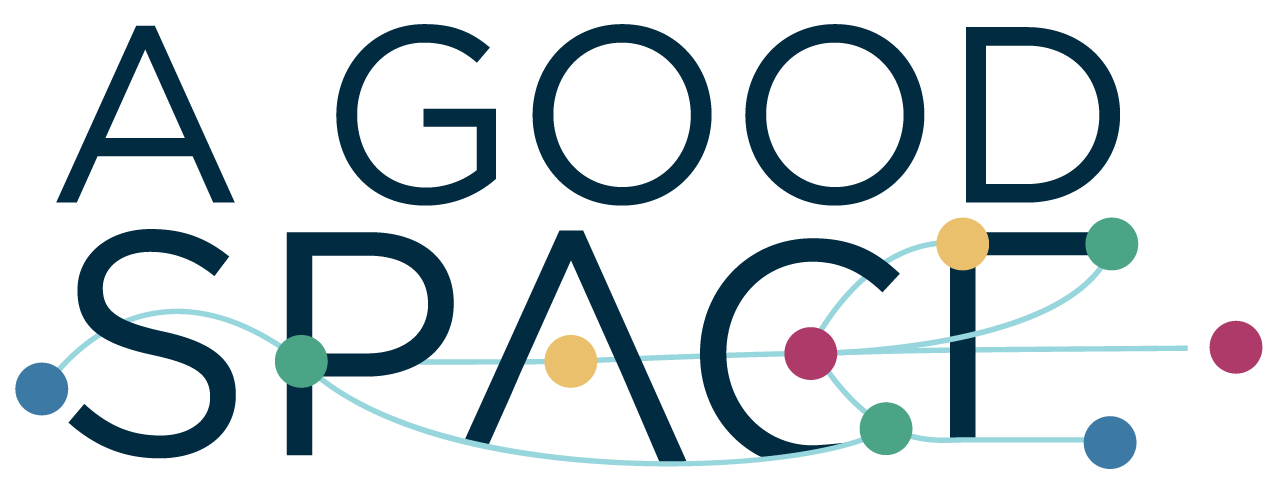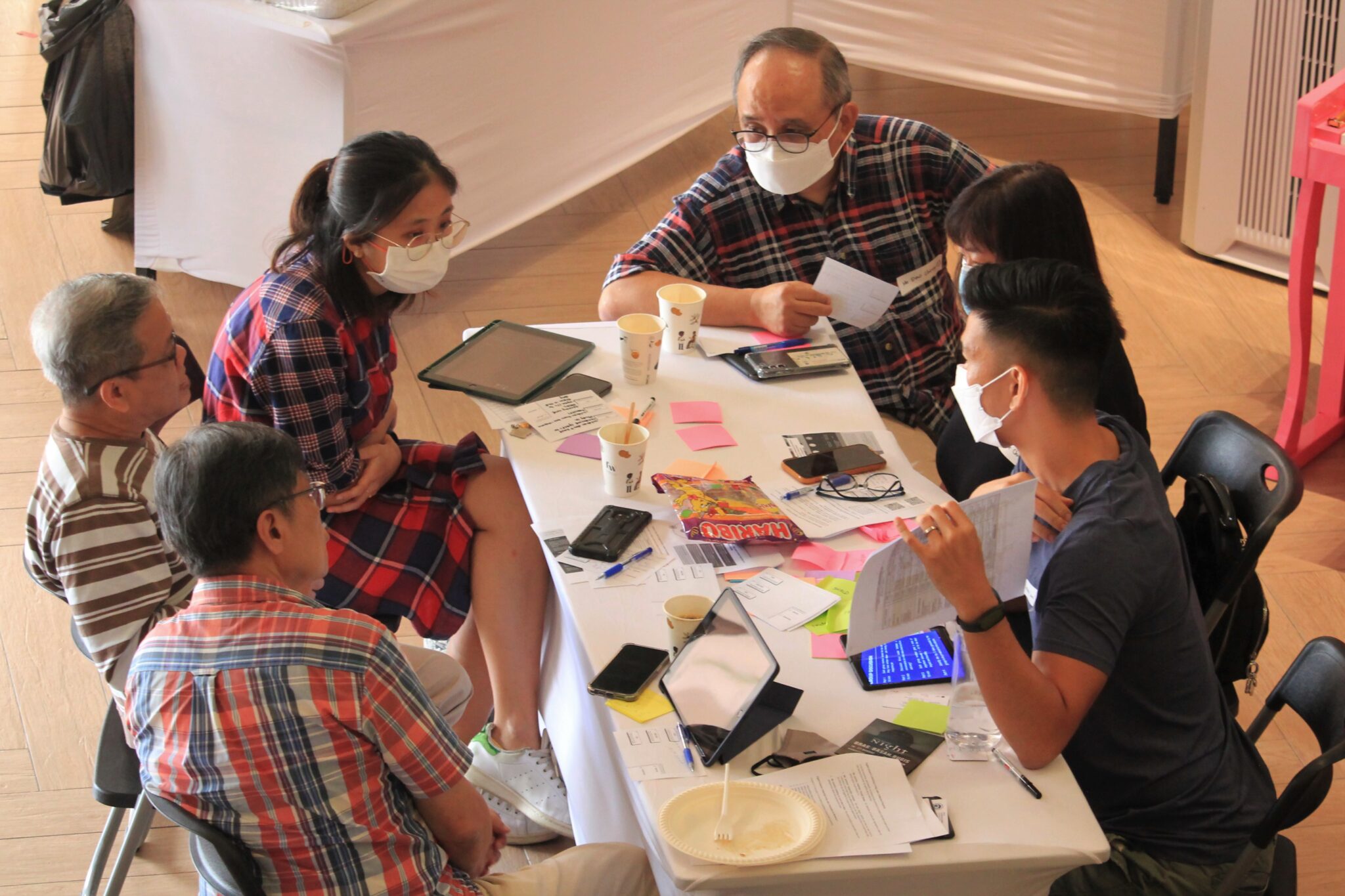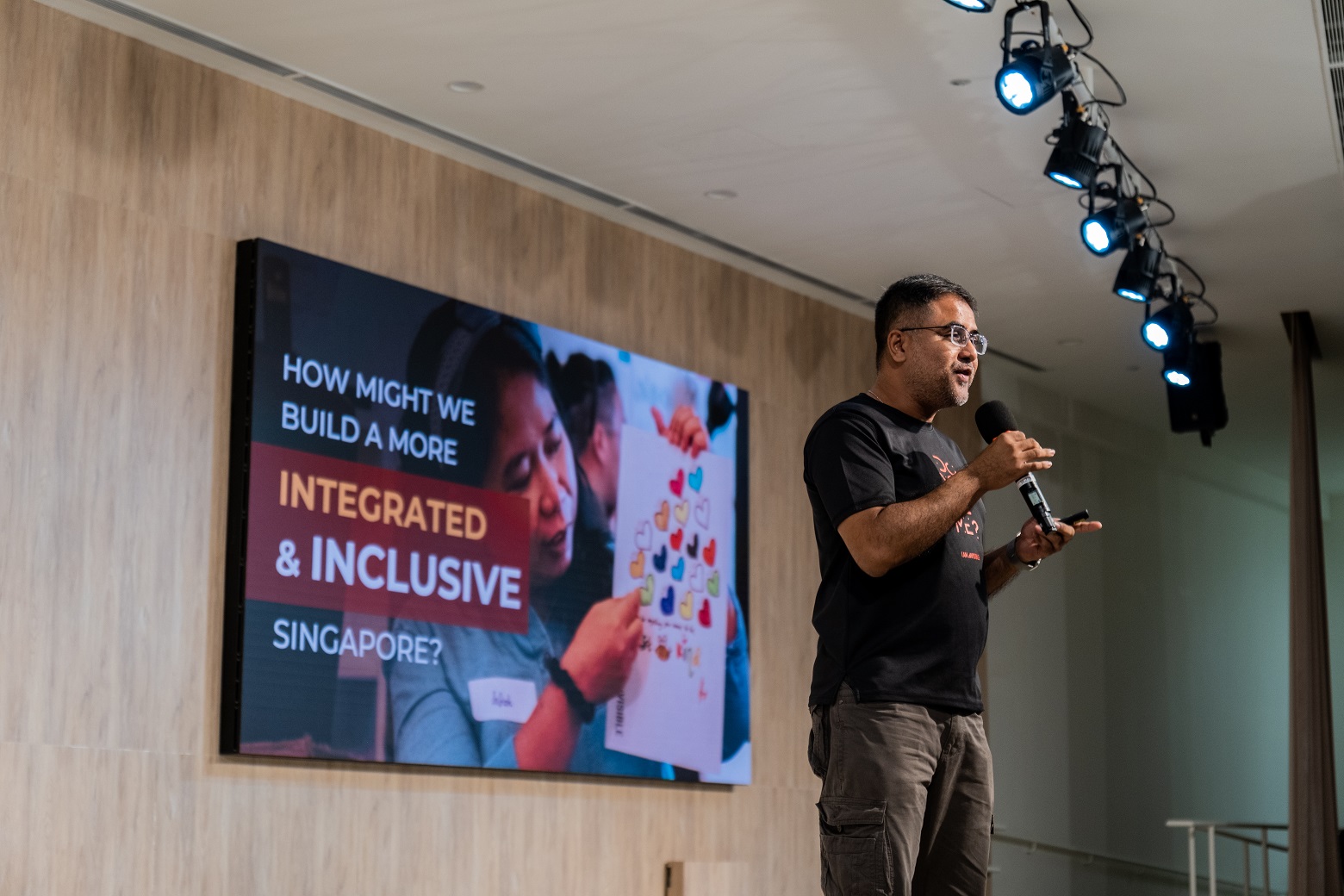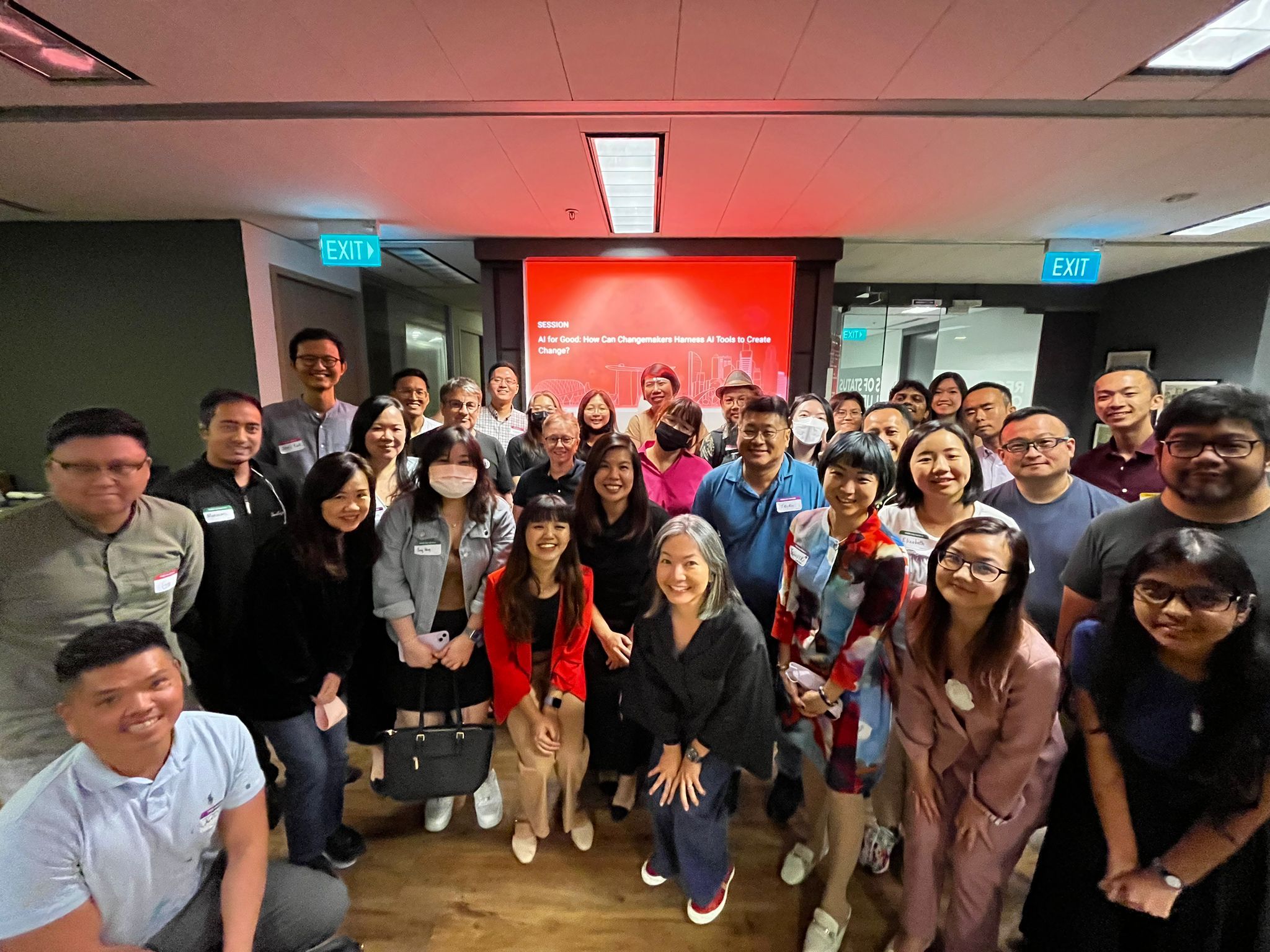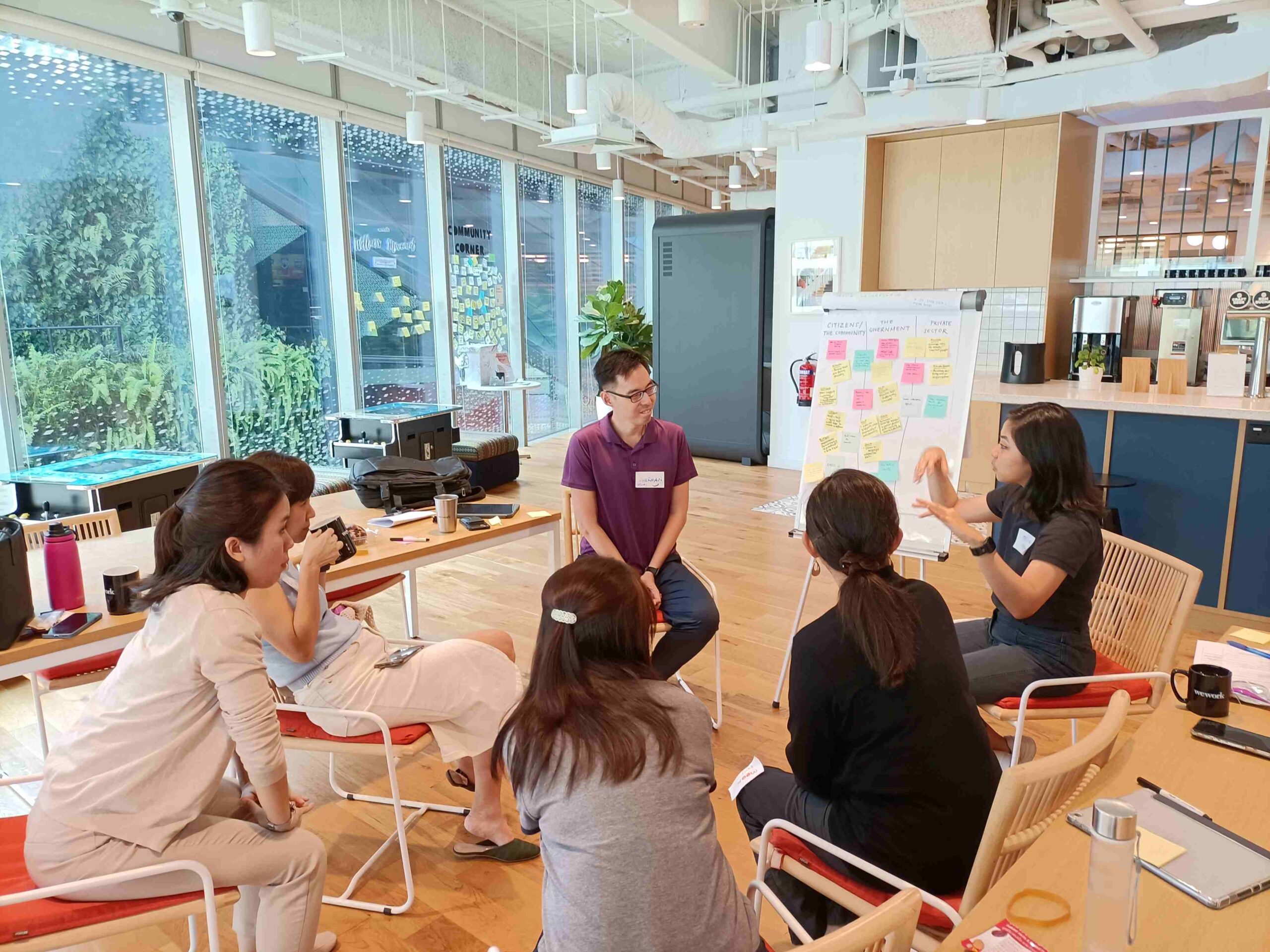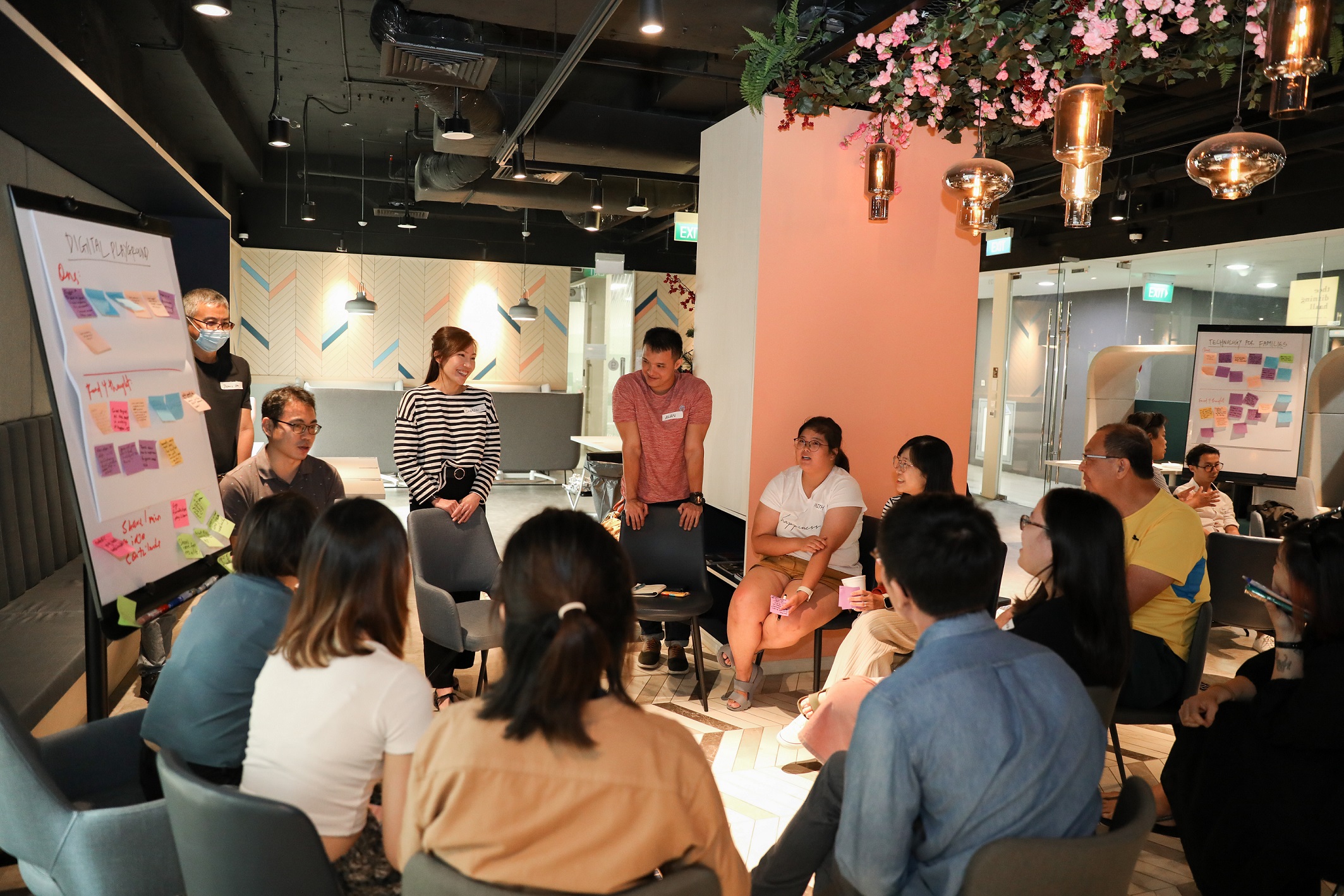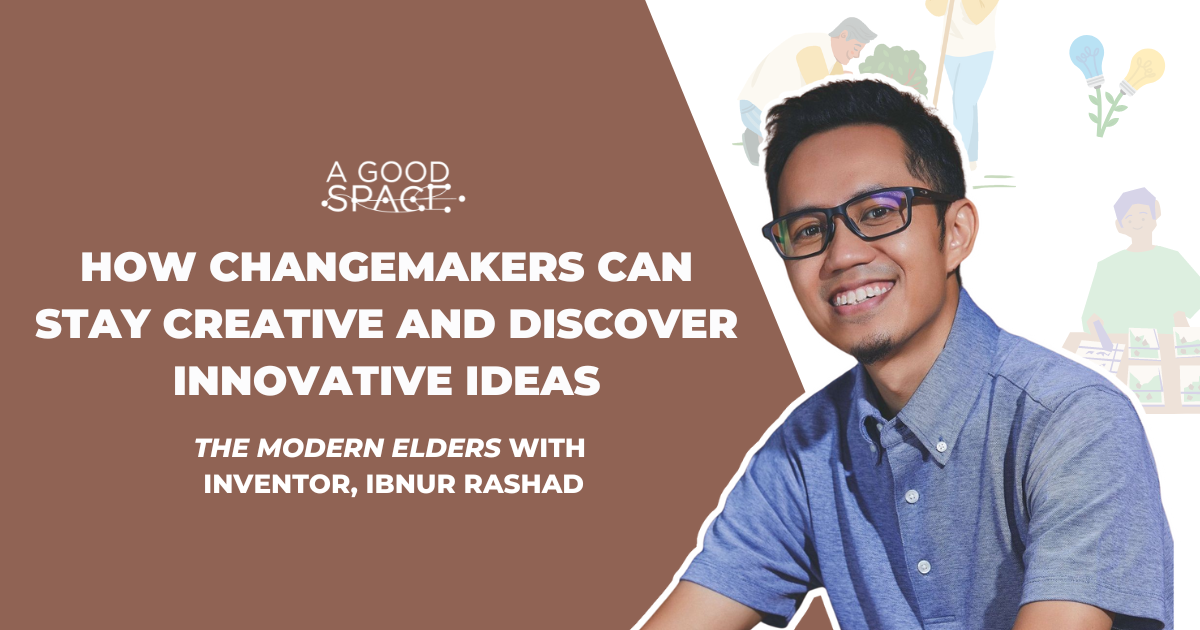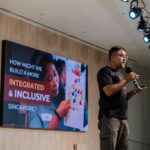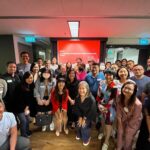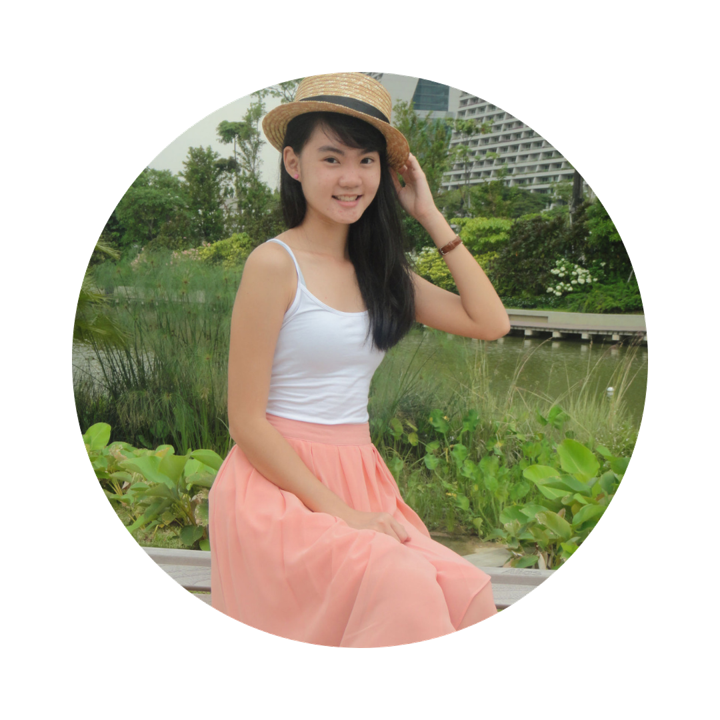When we were all forced by the pandemic to go online to learn, work and stay connected, many were cut-off from such access due to the lack of Internet connectivity, devices or digital literacy, especially those from low-income communities.
After seeing the complexity of this growing ‘digital divide’ during our involvement in the Mind The Gap Collective, we started the Digital Inclusion Listening Living Labs, a multi-year program to gather multi-sector stakeholders who care about digital inclusion (e.g. businesses, academics, non-profit organizations, persons with lived experience, etc) to listen to each other and ideate solutions to bridge the digital divide.
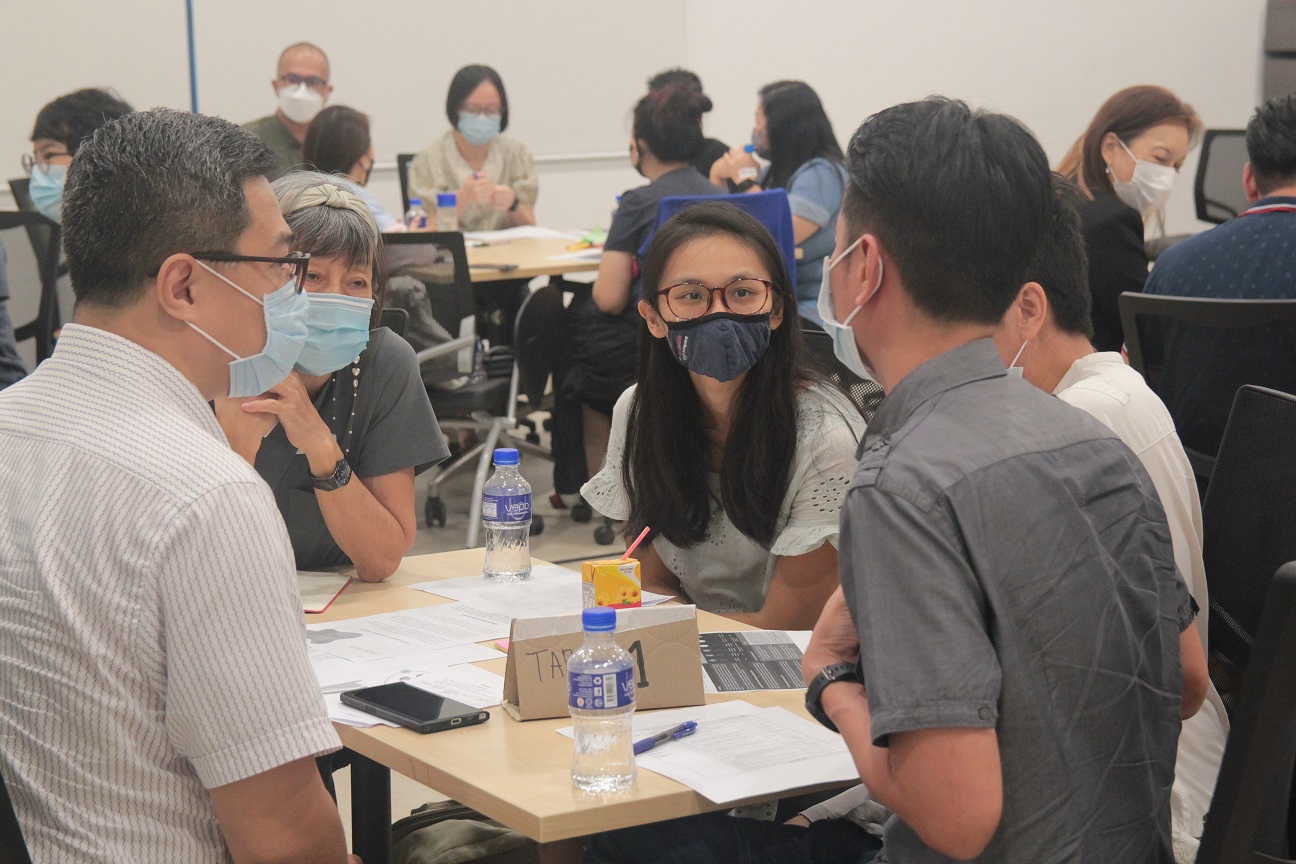
At our first workshop on 16 July, 29 participants from different sectors discussed the various challenges to digital inclusion faced by low-income communities in Singapore and identified three Challenge Statements:
🌐 How might we ensure that public rental flat residents can access quality Internet connectivity in a conducive environment?
💻 How might we support public rental flat residents to acquire digital skills and attitudes to enjoy a better quality of life?
💸 How might we support public rental flat residents to navigate online spaces safely and build their resilience against online harms
Recently, we organized the second workshop in this process, where 47 participants representing multi-sector stakeholders gathered to brainstorm ideas and form work-groups that will take action on these 3 challenge statements.
In this article, I will share the highlights from the workshop and the ideas that were generated.
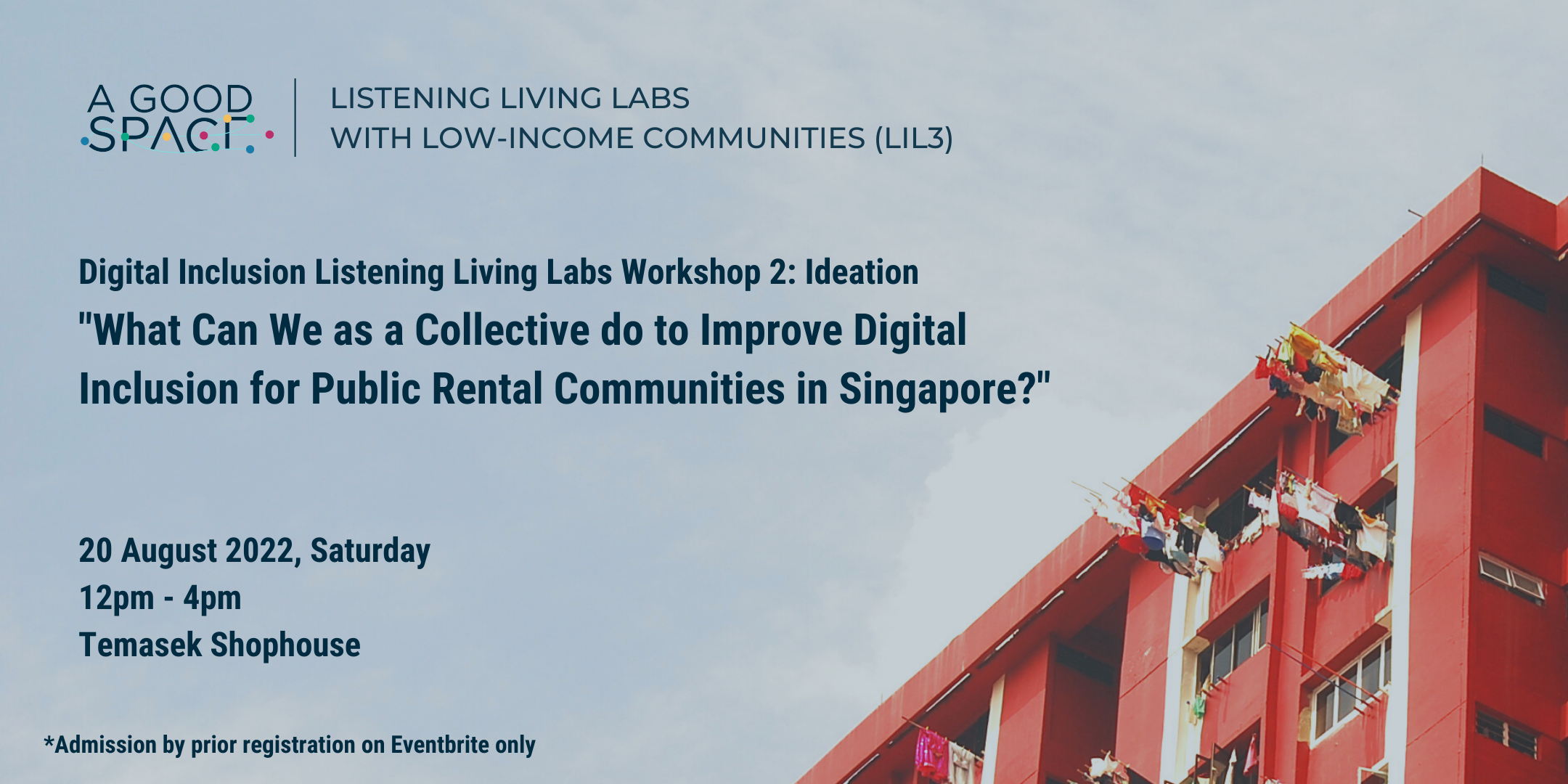
Who are public rental flat residents?
Since the challenge statements were angled towards residents of public rental flats, we started by setting the context of who public rental flat residents are.
Public rental flats are either 1 or 2 room flats and there are currently about 51,100 households living in them. To be eligible for a rental flat, one’s total household gross income should not exceed $1,500 per month.
In defining public rental flat residents as the key target audience for ideas generated, we might miss out people who live in purchase flats who are financially vulnerable and not participating in the digital space. There are also people living in landed housing who may be asset rich but cash poor and therefore, are financially vulnerable as well.
But we chose to start with public rental flats first so work-groups can form with a clear audience and can always scale their solutions to other people who are low-income but do not live in rental housing.
Understanding the challenge statements
We started the workshop with a presentation to participants on how we arrived at the 3 Challenge Statements.
For a more detailed summary of the findings and Challenge Statements we uncovered, please visit:
http://www.agoodspace.org/wp-content/uploads/2022/08/DIL3W2_Revised-Key-Insights.pdf
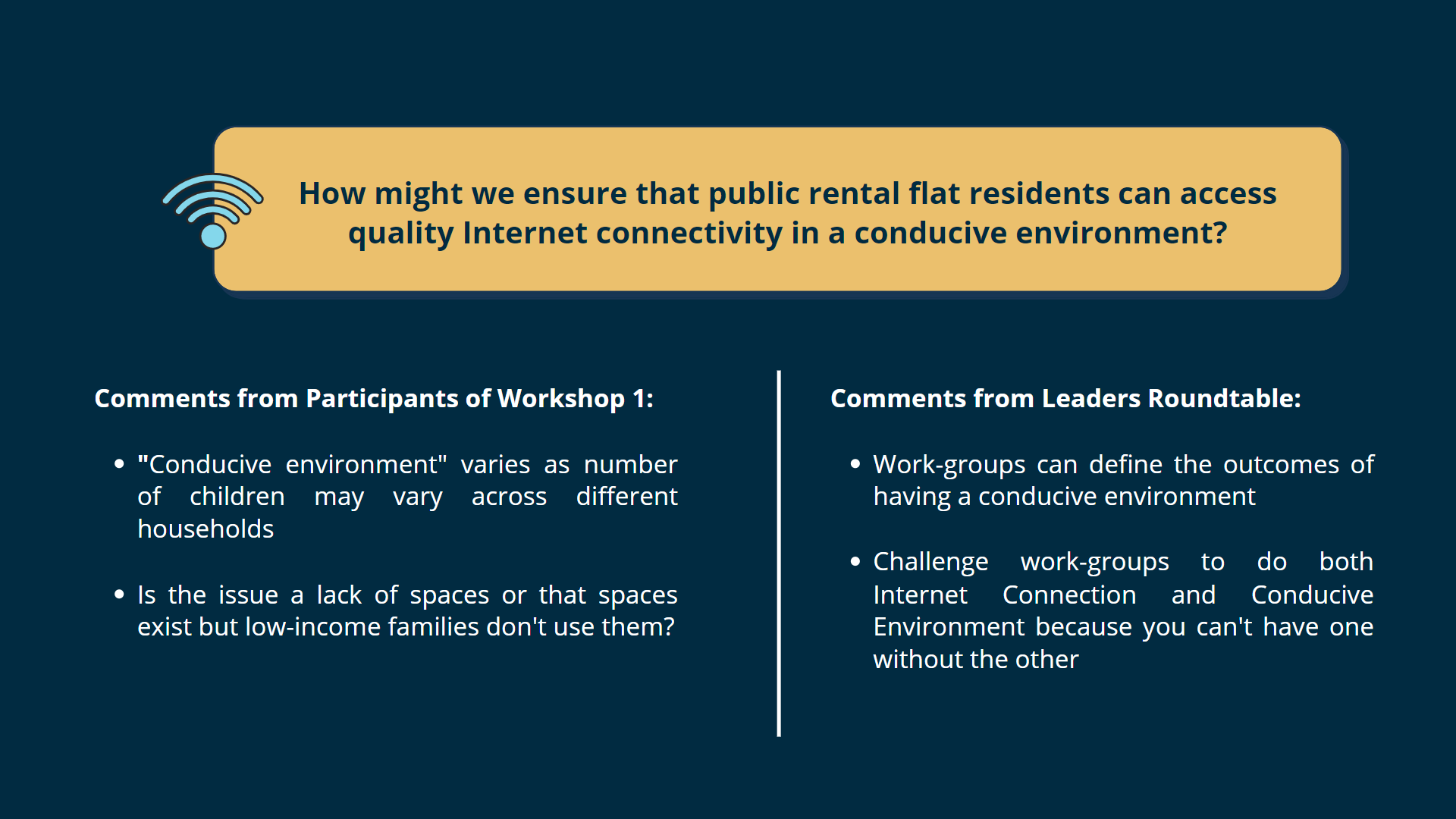
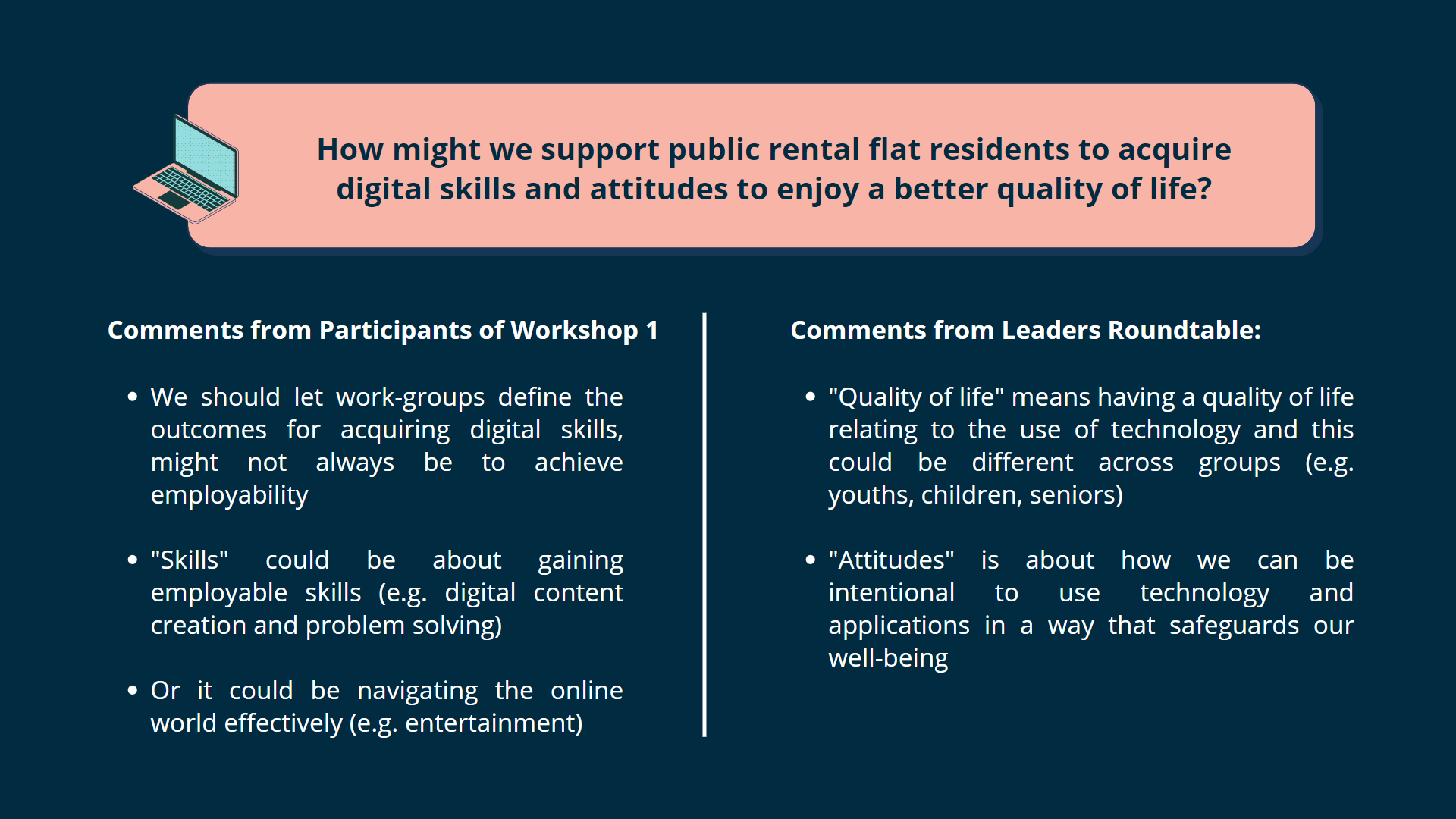
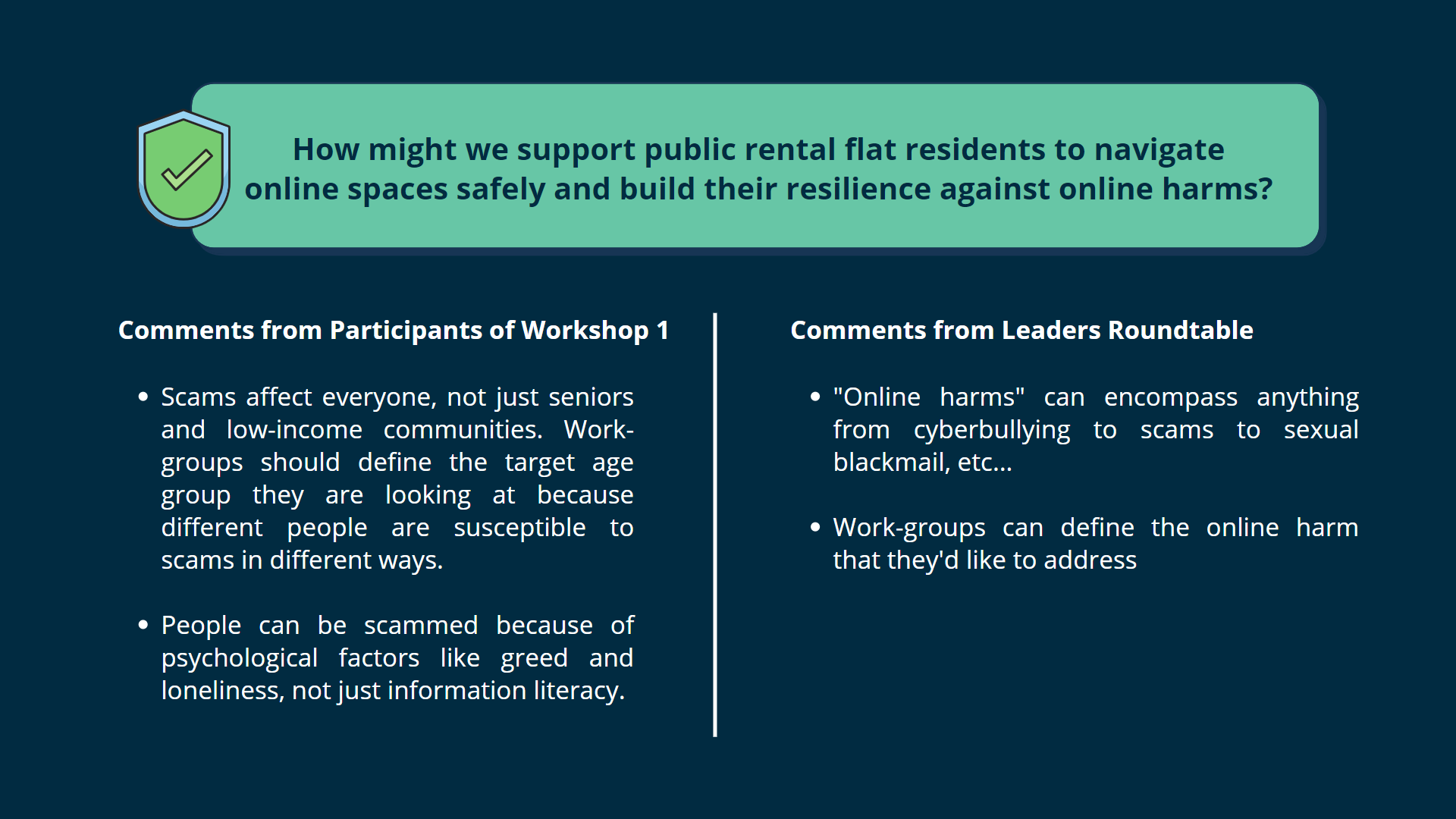
Creative warmup!
Just like how we have physical warm ups before exercise, we wanted participants to warm up and get their creative juices flowing before they jumped into brainstorming for ideas to respond to the Challenge Statements.
We asked each participant to note down as many alternate uses of a laptop as possible in 3 minutes. After that, they shared their ideas amongst their groups and chose the most creative one to be shared with the collective.
There were smiles and laughs all around as the ideas were shared and some were really creative, ranging from extracting the keys from the keyboard of a laptop to be used as a Scrabble set to using it as a racquet to play table tennis!
Brainstorming
After warming up, participants dove right into brainstorming ideas for the Challenge Statements they were interested in. We invited them to take 5 mins to pen down their thoughts on an ideation card, encouraging them to generate at least 2 ideas in response to some prompts.
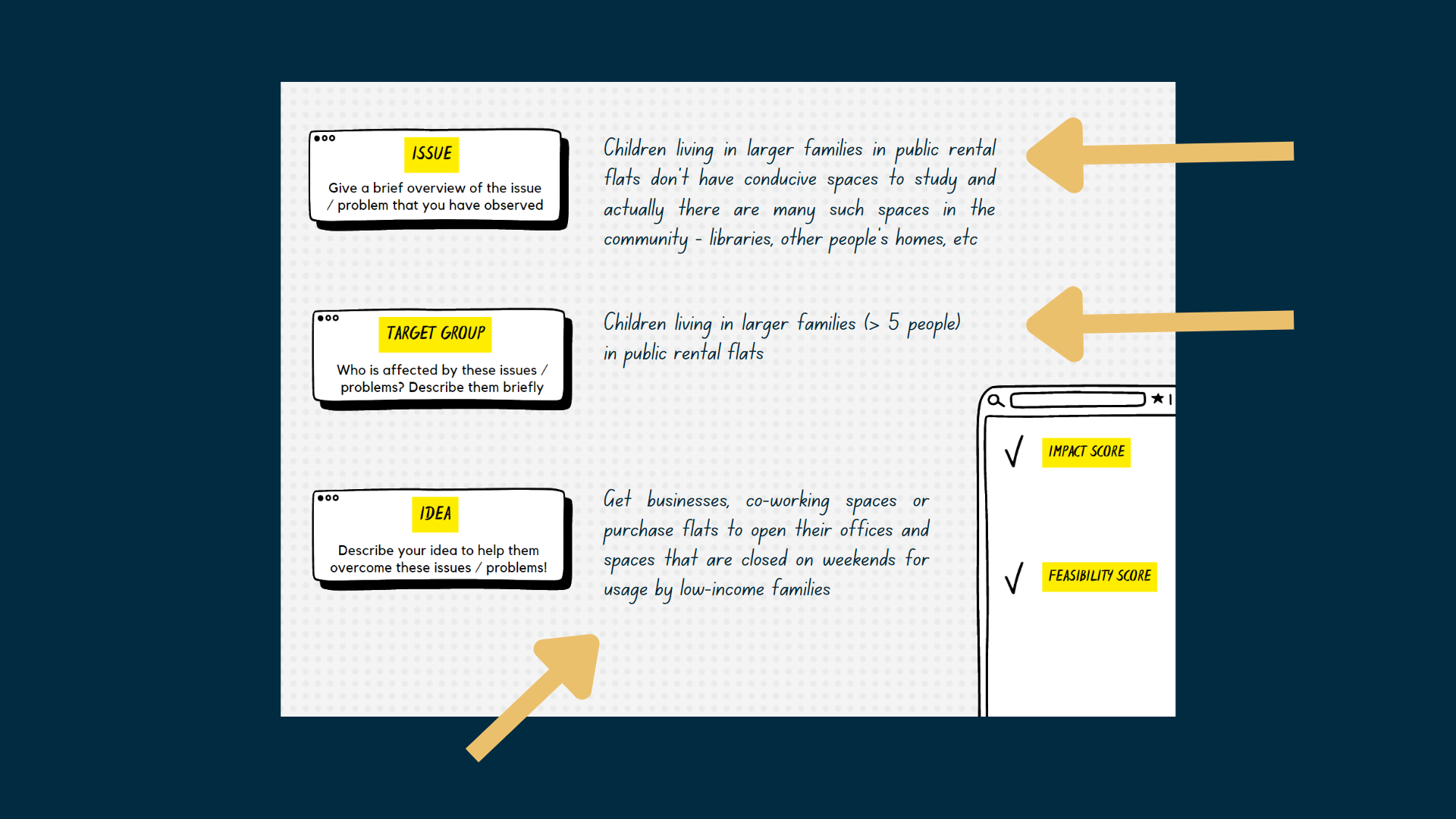
To guide their brainstorming, we introduced two constraints:
(i) The idea must be able to be implemented within 6 months (e.g. changing legislation might not be too realistic in 6 months but writing a policy recommendation might be
(ii) The idea must be something they can do, rather than something only the government or formal agencies can do.
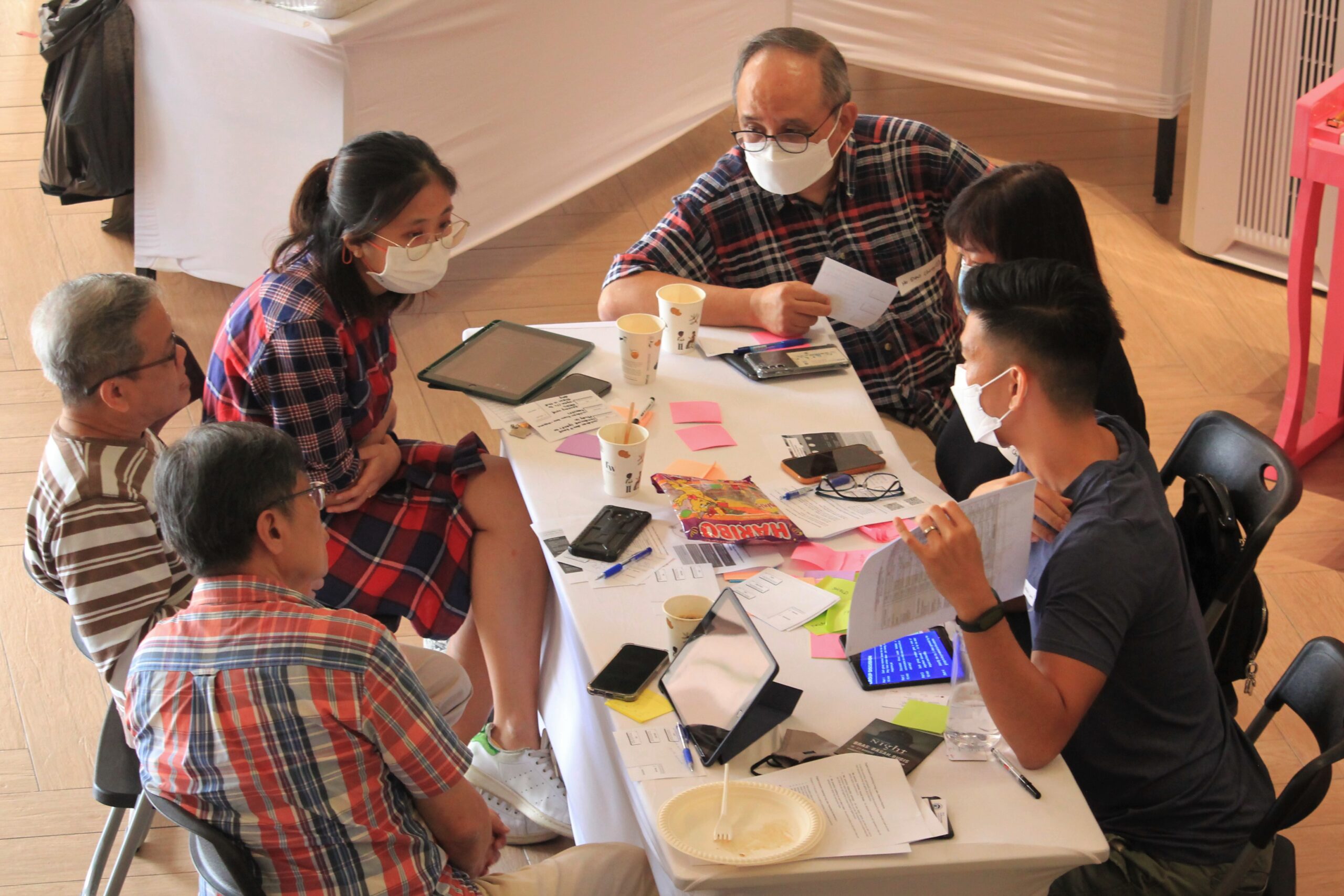
Prioritization of Ideas
After they had their two ideas, they were split into discussion groups where each person had a chance to share the two ideas they had generated. After everyone had shared, they gave each idea a score of 1 – 10 on two domains: impact and feasibility.
They identified the top two ideas based on these two domains, which they then shared with the other discussion groups working on the same challenge statement.
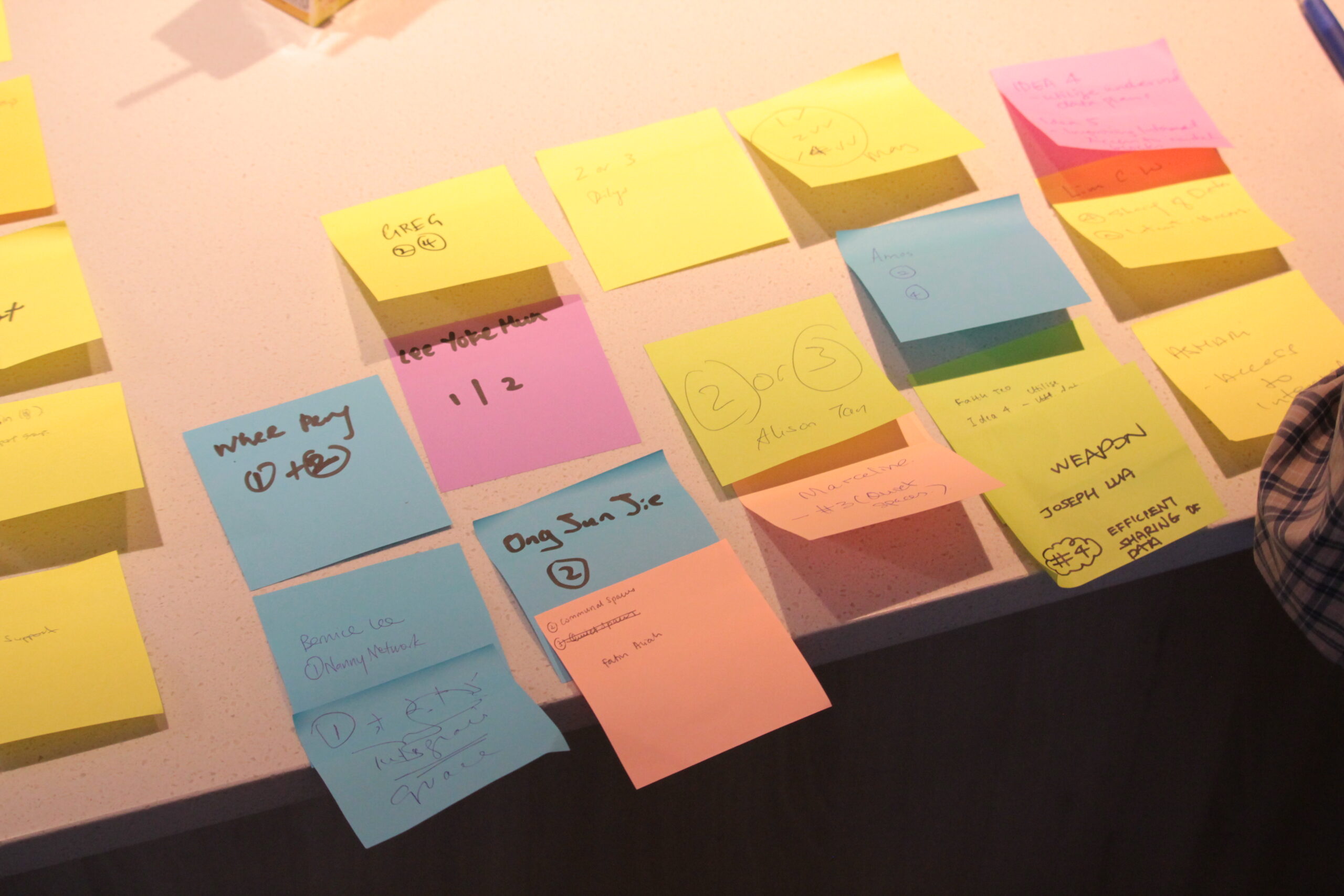
Forming of work-groups
After hearing the top ideas being presented for their challenge statement, participants chose the idea they were most interested to work on and put their name to it. After a flurry of activity of us trying to sort people around, the work-groups were formed!
Develop ideas further using the idea development Canvas
Now that each participant was in a group with an idea they were excited to work on, we asked them to develop their ideas further using a simple Canvas we had designed around 4 questions:
(i) What problem is your group hoping to solve?
(ii) What is the idea you have to address this problem?
(iii) If we were to implement this idea within 6 months, what must happen for us to consider it a success?
(iv) What is the long term impact if we can address the problem?
This prompted another round of rich discussion as the groups refined their ideas, a helpful step along the way to Workshop 3, where each work-group will pitch their idea internally to the rest of the collective.
In total, 10 work-groups were formed, with ideas ranging from creating a community network of caregivers and resource persons to guide children on using technology for learning to using games to help children from low-income families learn digital skills.
If you’d like to see some of these preliminary ideas, please visit: https://bit.ly/DIL3PDB
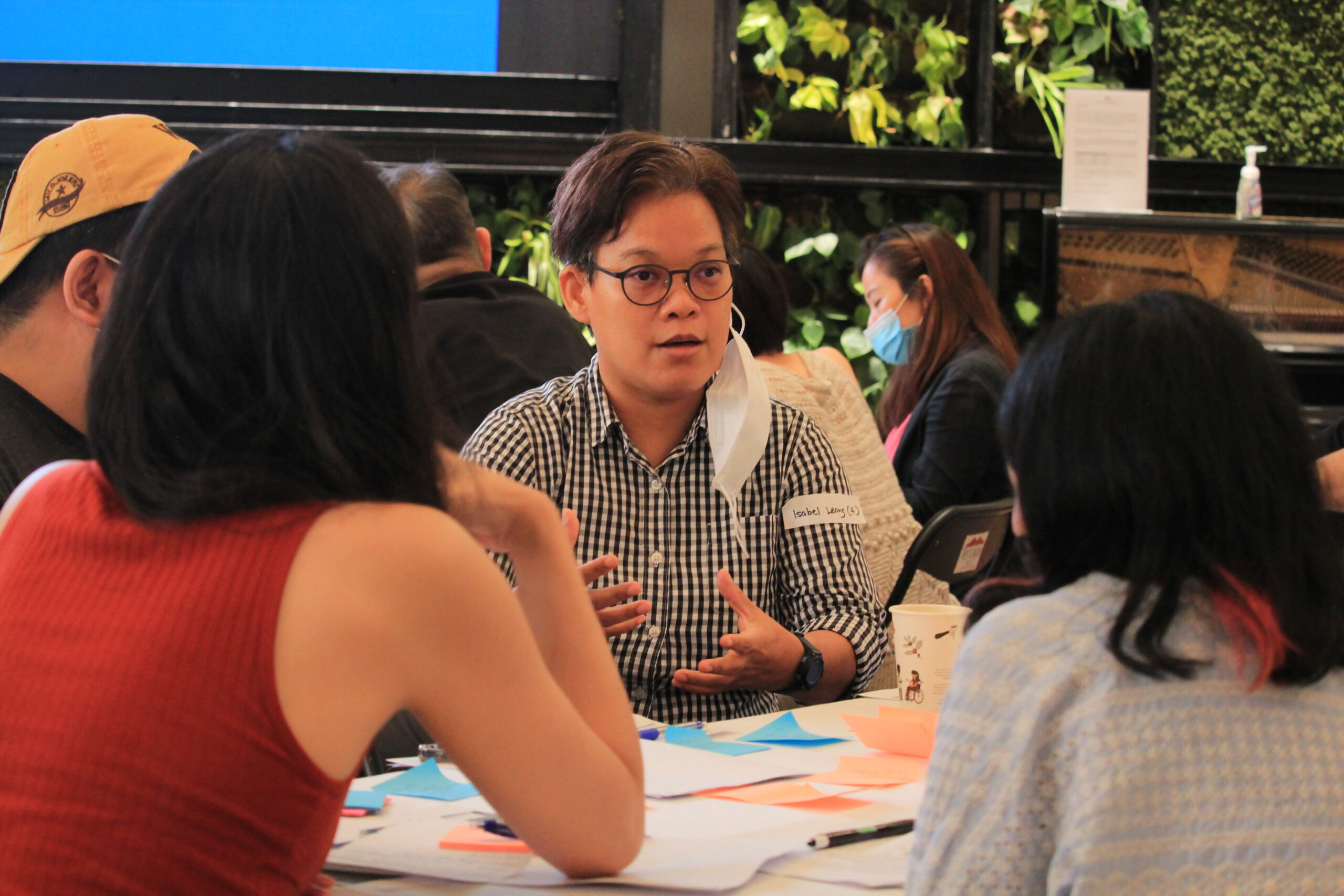
The road ahead in workshop 3
Now that they have some initial ideas, the work-groups will refine them further and prepare for a pitch to other work-groups in the collective at the Workshop 3 on 15 Oct (Sat), 1pm – 5pm.
We have asked each team to prepare a pitch around the following questions:
(i) What problem does your idea solve?
(ii) What is your idea and how does it address the problem?
(iii) What is the impact you want to create?
(iv) What are the key milestones in the next 6 months?
(v) What resources do you need to make your idea happen?
(vi) What risks do you see and how can you mitigate them?
After these ideas are refined, our dream is that the work-groups will implement their ideas. With the lessons learnt, we hope to create potentially Singapore’s first ever 5-year strategic plan of action to significantly improve digital inclusion for the 51,100 households living in public rental flats, endorsed by multi-sector stakeholders.
If you’d like to register for the next workshop, please visit: https://www.eventbrite.sg/e/digital-inclusion-listening-living-labs-workshop-3-first-pitch-tickets-407773440337
Hope to see you there and say hello in person!
